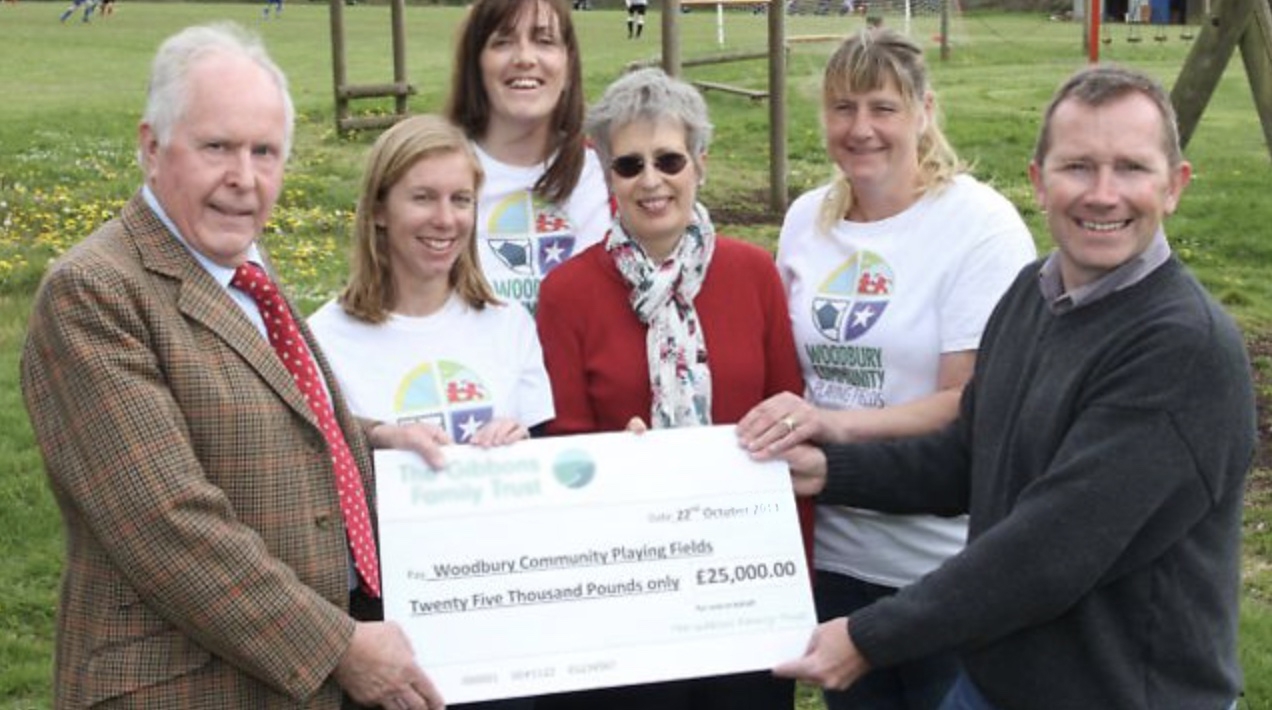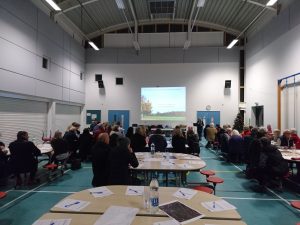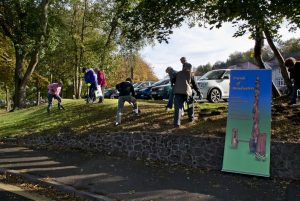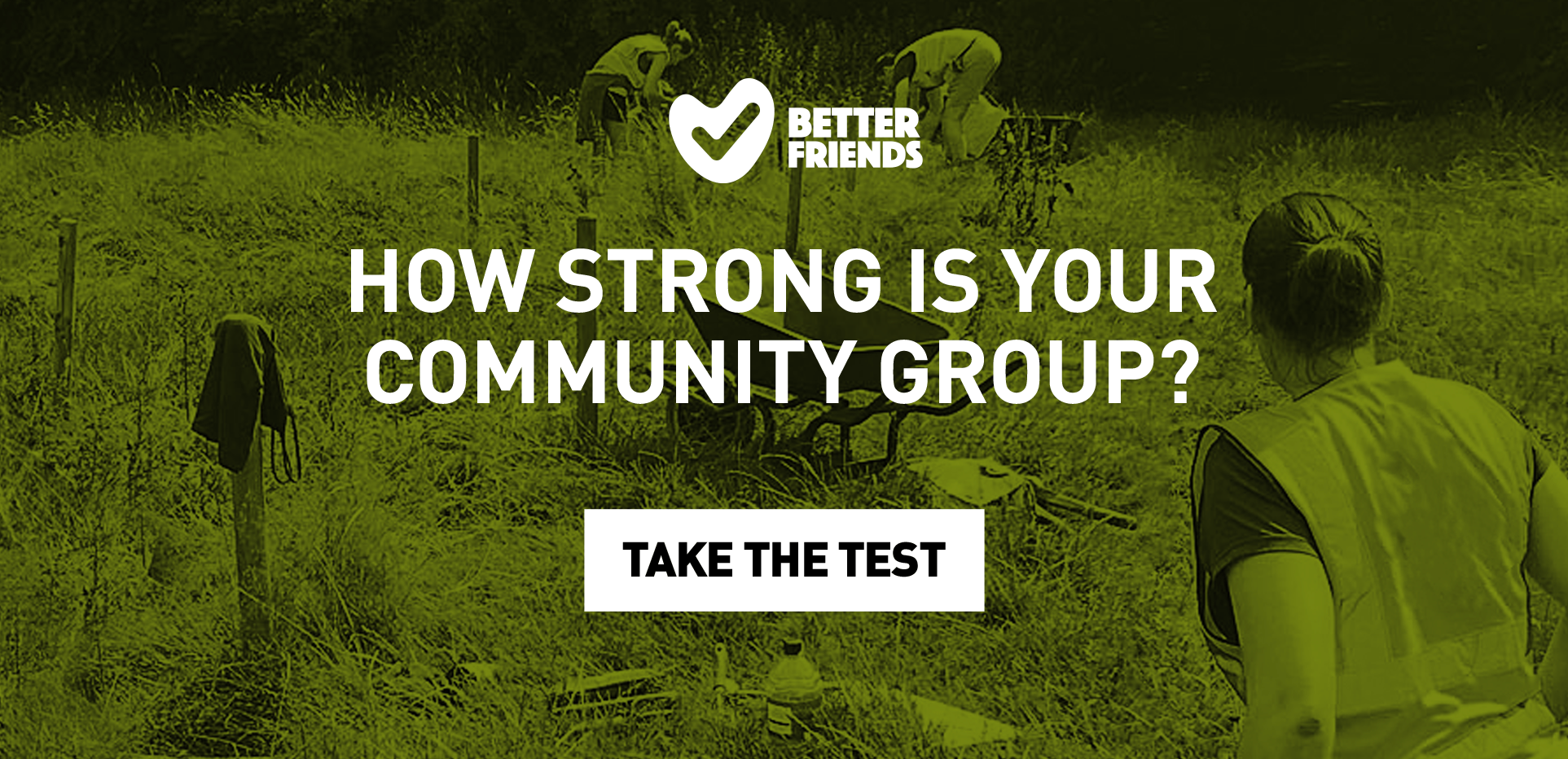Before you start a bid
One of the great advantages community park groups have over individuals or the council is their eligibility to access a whole range of different funding sources to make park improvements, carry out projects or hold events. The local Green Space Forums can offer a wide range of support to help groups raise funds and carry out projects.
It is important that, if you are thinking of raising money, you contact your Area Manager and/or Team Leader. The earlier you do this the better. Not doing so could result in you wasting a lot of time and energy on something you cannot get permission for, which may not be appropriate or which the Parks Department does not feel it can maintain.
A Greenspace Forum and Parks Manager can:
- Offer you practical advice on how to fill in grant applications and where to look to find grant funding opportunities;
- Advise you of any existing plans or projects proposed for the park or green space you are interested in;
- Provide technical advice and details of potential suppliers and contractors;
- Provide ecological and conservation advice;
- Offer project management support and the services of landscape design, if appropriate (this may not always be available).;
More complete advice is available in How to apply for Grant
Funding.
Making your application
Introduction
Charities and small groups and organisations regularly raise money from grants made available from a huge variety of funding providers. Providers could be local authorities, community trusts, the Lottery, regeneration initiativea, private or public companies and private trusts.
All providers have things they will give money for and things they won’t, have application deadlines and maximum sums of money they will give. Often they will also restrict their spending to certain areas or certain groups of people in the community and they often have only a certain amount of money they will give away each year.
If there is a project you would like to find funding for the chances are there is a funding provider out there to suit your needs, all you have to do is find them! A key thing to remember is that funding providers want to give away their money, that’s why they exist. However there is a lot of competition for that money and, as a group, it is important that you stack the odds in your favour. If you then apply determination, you should be successful.
Before you apply
Be a group a funding provider can trust
The vast majority of funding providers will only give funds to charities or organisations with charitable, not-for-profit objectives. This means that you must have a ‘governing document’ such as a constitution, which states this and shows that you are a well organised, democratic group or organisation with a committee to share responsibilities. You must also have a bank account in the group’s name with at least two signatories required to draw money – some providers may require accounts to show how well run the group is. Some funding providers do give to individuals as ‘community champions’ who are not part of an organised group.
An alternative is to be a group affiliated to a charity or similar so that you can raise funds in its name and it submits the application on your behalf. The advantages of this are that you don’t have to be as organised or manage the money if you raise it successfully – and it is less time consuming. The down side is that if the objectives of the ‘parent’ organisation do not quite match the requirements of the fund you are applying to, even if you do, you may not be able to apply.
Make sure you have a good project
Have you carried out consultation locally – can you demonstrate you are acting on behalf of your community and their needs?
Have you got permission and support for your project from the landowner or the person that may have to maintain the project in the future. Get this early on. It may save you a lot of unnecessary work.
Is there a partner you could be working with? Often different groups working in partnership demonstrates local need and support and allows for the sharing of responsibilities for a successful project. It is common for groups to work closely with their local authority and often the local authority can act as ‘bankers’ or project managers.
Work out accurate project costs
Have you got quotes for the work you want to do? Have you got them in writing? This isn’t always necessary with some grants but it is for most. Check if in doubt.
Quotes often don’t include VAT which you will have to pay. Ask the person who is providing the quote if VAT is included and allow for it if it isn’t.
Get realistic estimates based on similar projects if you cannot get quotes.
Have you written down a budget – income, expenditure and the timing of expenditure?
Rule of thumb – what you ask for initially shouldn’t change more than 10% through the implementation of the project. Often, your project simply cannot be allowed to go over budget.
Think about Match Funding
Do you have any funds you can commit to the project? A funding provider may rightly ask questions if you are asking for money and you have money sat in the bank.
Would it be better to try and fund the project from a number of sources? Some funding providers prefer to work this way and getting one funding provider on-board demonstrates the ‘robustness’ of the project and the credibility of the organisation making the application.
Find the right funding provider(s)
The rule of thumb with all fundraising is to find the funding provider whose criteria most closely matches your project. It is useful to get into the habit of looking at your project in a number of different ways to hunt for potential providers. For example, a project in which ‘schoolchildren are going to design and help build a sensory garden in their local park’ may fit the criteria of funding providers that are concerned with children and young people, the environment, education, the elderly, communities or disabled people. All or some of these may be willing to provide funds for such a project.
If you are looking for funding for long-term or multi-faceted projects then you can think about breaking it down into smaller projects that will more closely meet the criteria of a range of different funding providers. However, be careful as some funding providers do not like to fund ‘part of a project’.
Community Information
It is important to demonstrate that your project has local support. However for a project that is designed to meet the needs of, or which will benefit, people that can be commonly regarded as experiencing social exclusion and/or discrimination, you will also need to find national or regional statistics as evidence of this. Some funding providers will only fund these groups or ‘deprived’ areas and will ask you to provide statistics to show you meet their criteria.
The best place to look for this information is online. The following websites should give you the relevant information:
Go to local council website and search for “Census 2011”
Go to the government’s national statistics website:
www.neighbourhood.statistics.gov.uk/default.asp
www.neighbourhood.statistics.gov.uk/dissemination
Working out a budget
It is important to accurately and clearly display the costs of your project to a potential funding provider. Providers may specify how they want the budget in your application to be presented but if that isn’t the case, then the simple table format shown in Funding 3 would be suitable if asking for all funds from one funding provider.

Reproduced with permission of North West Parks Friends Forum







